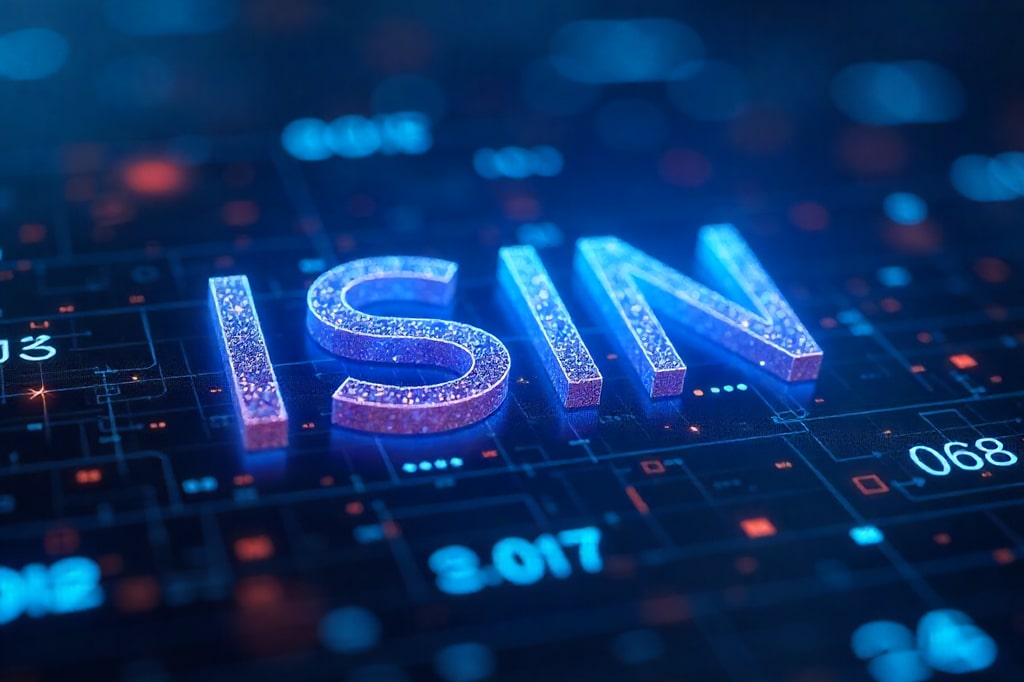Who Can Apply for ISIN?
Various parties involved with the issuing company (the company that requires the identification code) can apply for the number, including third parties or the issuing company itself. Who can request an ISIN? In today’s fast-moving financial world, it’s important to properly identify and track shares, bonds, and other investment instruments. This is where ISIN, or International Securities Identification Number, plays a key role.
An ISIN is a unique 12-character code that helps clearly identify a specific security (like a share or bond). It’s used by companies, stock exchanges, banks, and investors worldwide to keep things organized and ensure smooth and safe trading.
Why ISIN is Important
If a company in India wants to issue shares or bonds, especially in demat form (electronic format) or list them on the stock exchange, it must obtain an ISIN. This number:
- Helps identify the security uniquely in India and internationally
- Makes buying and selling easier through electronic systems
- Reduces the chances of errors in trading
- Is required for regulatory compliance
- Enables faster and more secure settlement of trades
Process of ISIN Registration
1. Application
The company (or its authorized representative) needs to apply to NSDL or CDSL with all the required details. This includes:
- Name and type of the security (e.g., equity shares, preference shares, debentures)
- Face value and currency
- Company details
- Copy of the board resolution for issue
- Other relevant company and security-related documents
2. Verification
The depository (NSDL/CDSL) checks all the information and documents. If anything is missing or unclear, they may ask for clarification or more paperwork.
3. ISIN Allotment
If everything is in order, a unique 12-character ISIN is generated and assigned to the security. This number is now the official identity of that security across all platforms.
4. Registration and Use
Once the ISIN is issued, the security can be held in demat form, and transactions can be done electronically. The ISIN remains the same throughout the life of the security, unless there’s a major change like a merger or name change.
Overview of ISIN Number
An ISIN is a mix of letters and numbers, where the first two letters represent the country code (IN = India). The next 9 digits are unique to the specific security. The last digit is a check digit used for error detection.
ISINs are used in many financial activities, such as:
- Issuing new securities
- Listing shares on the stock exchange
- Converting shares into electronic form (dematerialization)
- Tracking ownership and transfers
- Settling trades through clearing houses
- Reporting to regulators like SEBI and RBI
Fees
The fees for ISIN registration may vary depending on several factors, including the complexity of the issuance, the type of security, and the level of support required during the process.
To determine the applicable charges, the company must submit its offering documents or other relevant materials for review. After evaluating the scope of work and the nature of the security, the fees will be assessed based on the level of assistance and services needed.
Significance of ISIN in Financial Markets
The ISIN plays a crucial role in the global financial system. It enables accurate identification of securities across different markets, ensures smooth transaction settlement, and helps regulators, investors, and institutions track ownership and trading history. It also reduces the chances of errors and confusion, especially in cross-border trading, by standardizing the identification format.
Who Issues ISIN in India?
In India, ISINs are issued by the National Securities Depository Limited (NSDL) and Central Depository Services (India) Limited (CDSL), under the oversight of the Securities and Exchange Board of India (SEBI). These entities act as the National Numbering Agency (NNA) responsible for assigning ISINs to securities issued in India.
Types of Securities That Require ISIN
ISINs can be assigned to a wide range of financial instruments, including:
- Equity shares
- Preference shares
- Debentures
- Bonds (convertible and non-convertible)
- Mutual fund units
- Commercial papers and certificates of deposit
- Government securities
- Structured finance instruments
Validity and Lifecycle of an ISIN
Once issued, an ISIN remains valid for the lifetime of the security. It does not change unless there is a significant alteration in the nature of the security, such as a merger, split or reclassification. It ensures continuity in tracking and all transactions involving the security are recorded using the same ISIN.
FAQ:
Q: Can a company apply for ISIN directly?
Yes, a company can apply directly or authorize a representative such as a RTA (Registrar & Transfer Agent), consultant, or attorney to apply on its behalf.
Q: Who issues the ISIN in India?
In India, ISINs are issued by NSDL and CDSL, the two central depositories, under the regulation of SEB
Q: Can a Company Have Multiple ISINs?
Yes, a company can have multiple ISINs, as each distinct security issued by the company requires a separate ISIN. For example, equity shares, preference shares, debentures, bonds, and other financial instruments—each class or series must be identified individually. The allocation of separate ISINs helps maintain transparency and integrity in the securities market.
In conclusion, obtaining an ISIN (International Securities Identification Number) is a crucial step for private companies, particularly those seeking to expand their operations and attract investors. It facilitates easier trading, settlement, and overall market access. For Indian companies, the mandatory dematerialization of shares and subsequent ISIN registration streamlines processes, enhances transparency, and aligns them with global standards.
Getting an ISIN (International Securities Identification Number) is an important step, especially for private companies that want to:
- Raise funds from investors
- Issue shares in demat (electronic) form
- List securities on Indian or foreign stock exchanges
ISIN makes it easier to trade, transfer, and track the securities electronically. It also ensures that the company’s securities follow all rules and are easily recognized in India and internationally.
It is mandatory for companies to convert their shares into demat form (especially for private companies with more than 200 shareholders). For this, they must:
- Apply for an ISIN
- Get their securities registered in electronic form
- Follow guidelines by depositories like NSDL/CDSL and SEB





